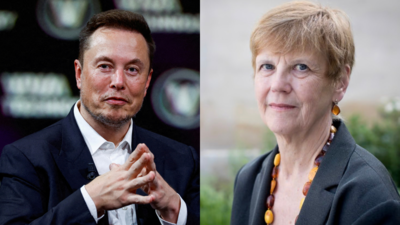
An expert at the University of Oxford has resigned from the UK’s national academy of sciences over concerns about Elon Musk’s continuing fellowship.
Professor Dorothy Bishop, an expert in children’s communication disorders, confirmed her resignation from the fellowship of the Royal Society last week.
Bishop’s decision stems from her discomfort with Musk’s continued fellowship. She met with Royal Society leaders who emphasised the need for formal procedures regarding Musk. Bishop told The Guardian that her move to resign was a “gut reaction.”
“I just started to think, you know, the Royal Society seemed to be set up to make it very, very difficult to ever get somebody to resign or to actually get thrown out, and given all I know about Musk, it felt grubby, to be honest,” Bishop was quoted as saying by
The Guardian
. She said that Musk’s presence contradicts the organisation’s values. “It just felt having him in the Royal Society seemed such a contradiction of all the values of the Royal Society. And I didn’t really want to have anything to do with it.”
Bishop also cited the Royal Society’s code of conduct regarding courteous treatment among fellows. “What I said to them was, I’m not going to be polite and nice to Elon Musk. I’m afraid, so I can’t keep to the code of conduct,” she explained.
In a blog post, Bishop acknowledged the likely limited impact of her resignation but said it offered her personal comfort. She expressed discomfort sharing the fellowship with Musk, describing him as someone “who appears to be modelling himself on a Bond villain, a man who has immeasurable wealth and power which he will use to threaten scientists who disagree with him.”
Musk became a Royal Society fellow in 2018 for contributions to the space and electric vehicle industries. Last year, he threatened legal action against researchers who reported increased hate speech on X (formerly Twitter) after his acquisition.
In August, Royal Society fellows voiced concern over Musk’s comments about UK unrest. Downing Street also criticised Musk’s statement, “civil war is inevitable,” regarding riots in Liverpool. The Royal Society, however, found Musk hadn’t violated its code of conduct.
Bishop and other fellows continued gathering evidence of behavior they believed clashed with the code of conduct. This included Musk’s posts about Anthony Fauci, vaccine conspiracy theories, and climate crisis.
The Royal Society’s code of conduct states fellows should “be mindful that what is said or stated in a personal capacity could still impact the Society.” Bishop suggested some senior fellows, less engaged with social media, might have a different perception of Musk. “I think the view you form of Elon Musk is completely different if you just read the newspapers covering it than if you’re immersed in social media, as I am, where every day he’s doing something more outrageous,” she said.

